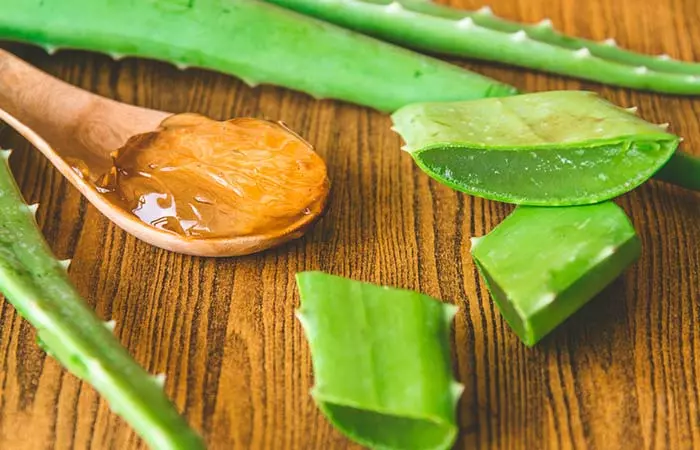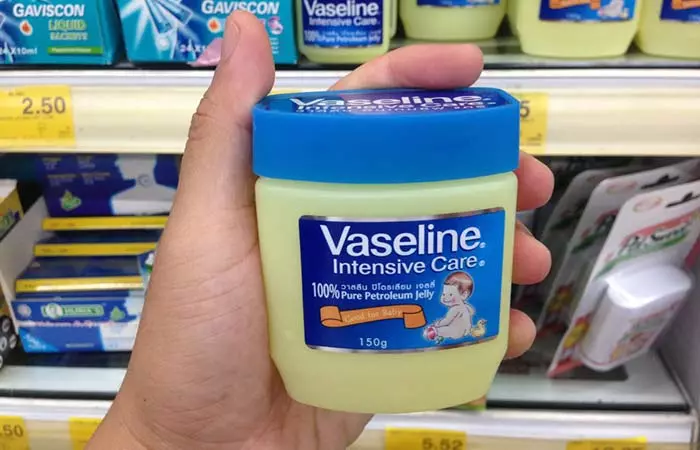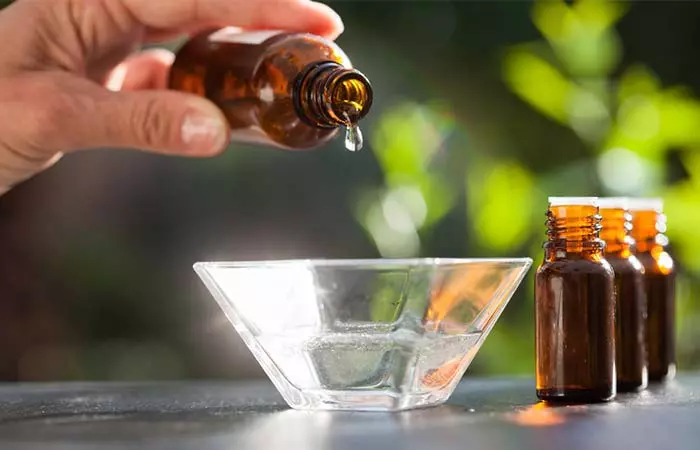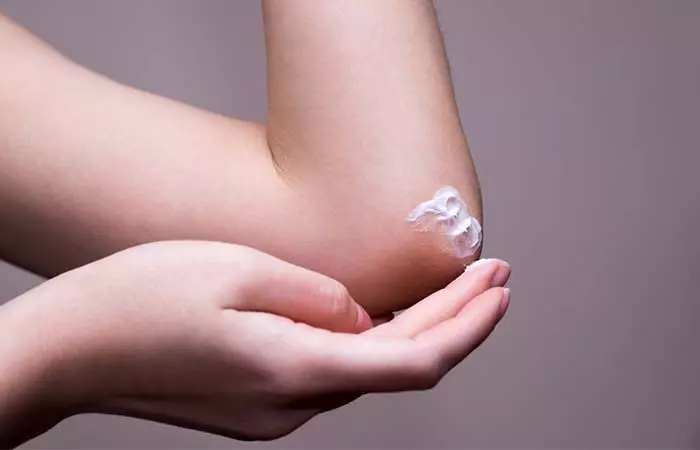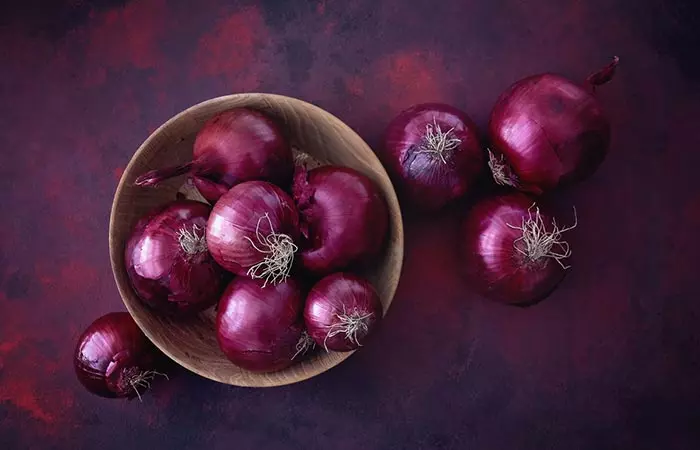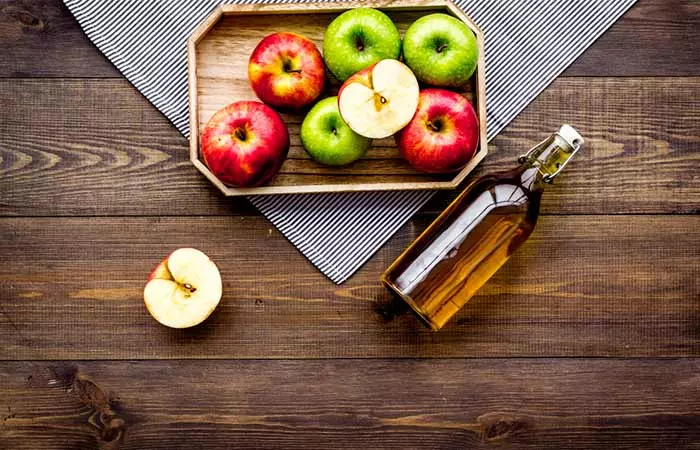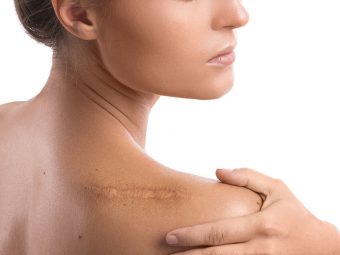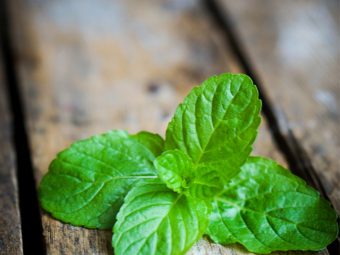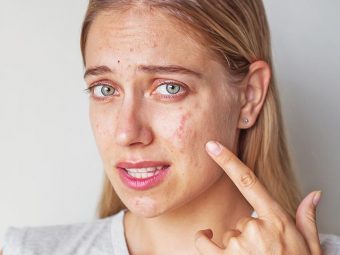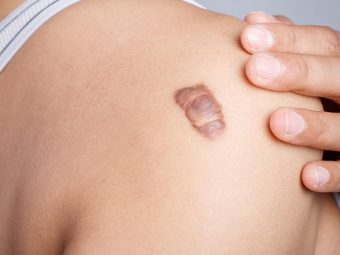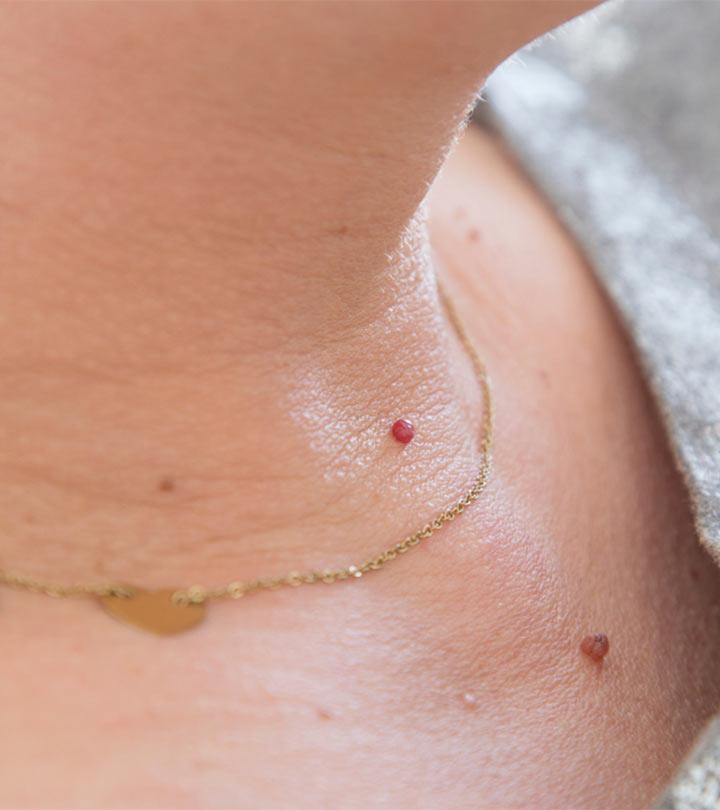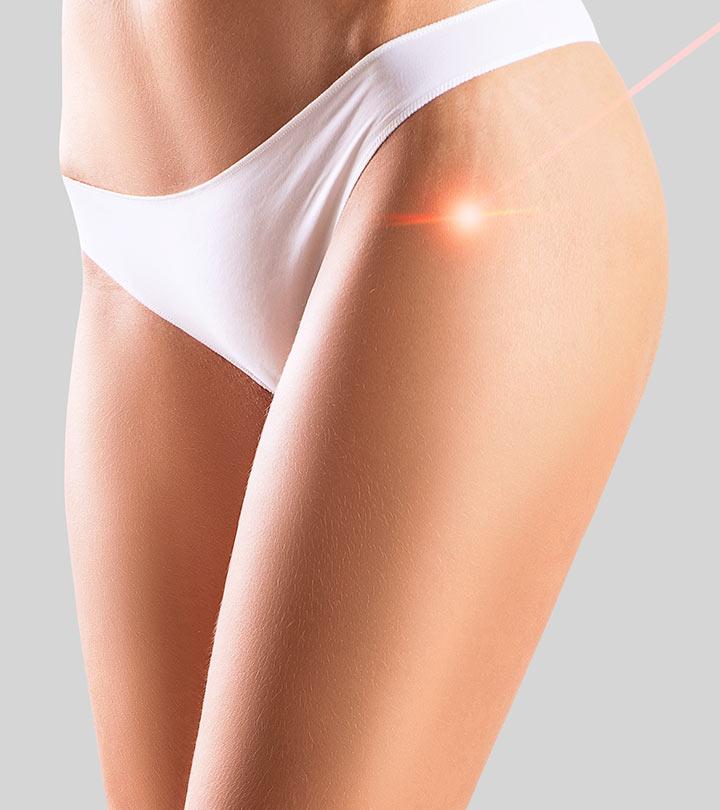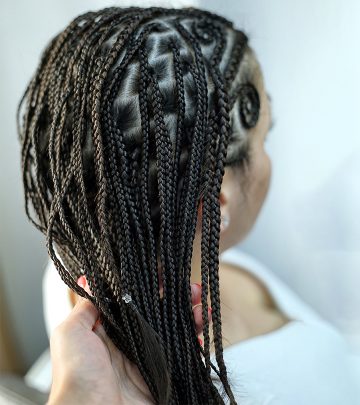7 Hacks To Remove All Types Of Scars And Help Them Heal

Image: Shutterstock
Scars are an outcome of many things — accidents, skin conditions like acne or pimples, certain diseases, and even surgeries. Scars surface on our body when that deep layer of the skin, also called as dermis, is damaged (1). We’re sure all of us have those childhood scars on our bodies, especially the ones on our knees that we acquired while learning to ride our bicycles. Certainly, they make for sweet memories, but life has given us stubborn scars too (the physical ones).
How Exactly Do These Scars Form?
It’s a biological process of healing of the skin. So, whenever you suffer from a wound, the body produces collagen fibers to heal the wound and as a result, a scar gets formed (2). A scar is formed after the wound has healed completely.
1. Aloe Vera
Aloe vera leaves are a boon to us humans. When it comes to healing our bodies, aloe vera does it in more ways than one. The leaves of this plant contain a gel-like substance; it helps in skin regeneration process. Also, we are aware of the cooling effect it can have on the skin (3). Isn’t that why we switch to body moisturizers that contain aloe during the summers? So, to heal your scars all you have to do is scoop out the gel from the leaf and apply it directly on your skin and massage it in circular motions. Leave it on for 30 minutes. Do this twice a day, consistently for a few months.
Best For: Post-surgical and cesarean scars.
2. Vaseline
Its benefits aren’t limited to treating your chapped lips or moisturizing your dry skin. In fact, studies say that our humble petroleum jelly has proved more effective in treating scars when compared to the other expensive creams that burn a hole in our pockets (4). Applying it thrice a day for 1-3 weeks helps to treat the dry skin of the scars and speeds up the healing process.
Best For: Acne scars, stubborn chicken pox scars, stretch marks.
3. Essential Oils (Sandalwood, Lavender)
They don’t just have therapeutic or aromatic healing properties. Studies say that essential oils promote the synthesis of collagen and are also ingrained with anti-inflammatory, antiseptic, and healing properties (5). Especially the lavender and sandalwood oils, which have the ability to heal your scars if you regularly massage the affected areas with them.
Best For: All kinds of scars.
4. Just Massage
Yes, all you have to do is massage the skin of your scars. Gently massage it with a mild moisturizer, every day for 30 seconds. The massaging helps in breaking down what’s known as the dense collagen of the underlying tissues (6) and makes the scar fade over time.
Best For: Caesarean and all sorts of surgical scars, keloid scars as well.
5. Onion Extract
This vegetable is known to contain antibacterial, anti-inflammatory and antiseptic properties (7). These properties help to reduce the extent of the scar and significantly soften their otherwise hard skin; this speeds up the healing process. We suggest you use onion extract gel for this. Applying it on hypertrophic scars thrice a day heals them significantly (8).
Best For: Hypertrophic scars formed as a result of surgeries and burn scars.
6. Honey And Apple Cider Vinegar
ACD has many uses because of its antioxidant and antimicrobial properties (9). It’s widely used by many as a natural disinfectant. We’re not saying applying it will eliminate your scar marks. But it will treat your scars to an extent that they become less noticeable. To avoid redness and irritation (we all know how strong ACD is) mix it with honey and apply it on the affected areas. Leave it on for ten minutes and rinse.
Best For: Acne scars.
7. Vitamin C
We all are under the misconception that vitamin E helps us get rid of scars. But the fact stands that it’s actually the vitamin C that helps in treating them (10). It helps improve the elasticity of the skin in addition to reducing its redness. It increases the pace of the wound healing process too. And if you’re wondering how you use vitamin C, well, doctors recommend it in the following ways — eating vitamin C rich supplements, drink juices, and even applying topical creams rich in vitamin C.
Best For: Acne and surgical scars.
Understand This
Scars sure do fade, most of them. But we could avoid them from occurring by taking certain precautionary measures. After all, scars appear when the wounds aren’t treated right. Follow these to keep scars at bay:
- Always keep the wound and its surrounding surface clean and apply a moisturizing ointment on it.
- Cover it with an adhesive bandage when you think you’re heading into a dusty environment.
- Apply sunscreen when you head out and basically avoid sun exposure.
- Don’t peel off the dry skin of the wounds.
- Take care of yourself so there is no further injury to the wound.
Now, you can use easily-available home ingredients to treat those pesky scars and blemishes. If you are aware of any other home remedies to treat scars, let us know in the comments below.

